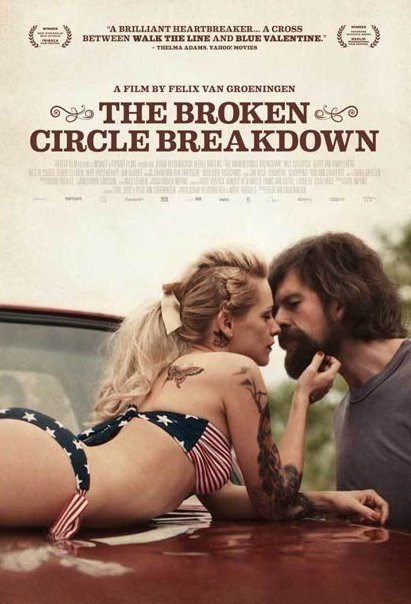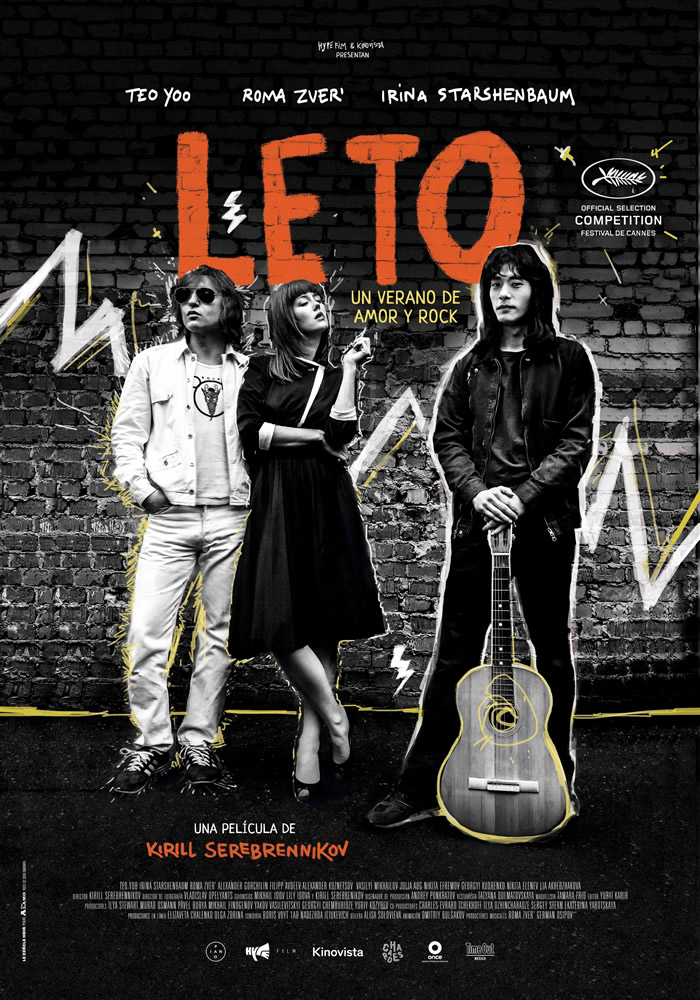

The first day of Main Competition screenings saw the premiere of a few film by Kirill Serebrennikov, and a collaboration from Felix van Groeningen, and Charlotte Vandermeersch. Tchaikovsky's Wife (read Elisa's review) marks the third time Serebrennikov competes for the Palme d'Or, but the first time he's been at the Croisette. In the last few years, he's forbidden from exiting Russia after being convicted of deviating state funds for the Gogol Center in Moscow, a subterfuge for punishing an artist who's consistently spoken against Putin's regime. The other screening was less politically charged in comparison. The Eight Mountains (read Elisa's review) is the first directorial collaboration of Groeningen and Vandermeersch, though they previously wrote the screenplay for Groeningen's The Broken Circle Breakdown. Moreover, it's Vandermeersch's debut as a director and is the first of five competition titles directed or co-directed by women – a record in Cannes history.
For the Cannes at Home miniseries, today's films are The Broken Circle Breakdown and Serebrennikov's Leto...

LETO (2018)
In the 1980s, Leningrad was the home of a budding rock scene where one's musical passions comprised a gesture of political rebellion. Between British pop and American rock, new wave stylings and glam rock spectacle, punk cries and techno beats, young folk grew to love the music of their country's so-called enemies. To pursue such interests could be dangerous, a gateway into illicit purchases and secret congregations. However, it also allowed strong bonds to grow, fellowships of those who both loved and hated their nation, forced to celebrate publicly what they'd reject in private.
It's a tense milieu that Kirill Serebrennikov resurrects with equal parts nostalgia and historical rigor. The director took inspiration from his own youth, and there's a palpable sense of romantic remembrance, manifested in monochrome cinematography and graphic lyric animation drawn over live-action footage. On the other hand, every material element and sonic scoring pulls us towards a register of archeological detail. Special kudos to Andrey Ponkratov's set designs which rightfully won a European Film Award. The script perpetuates this dynamic, using real accounts and real people to weave a tapestry of fact-based fiction.
The result of all these mechanisms is an uncomfortable middle point between immersion and alienation. Within this summer of rebellion in film form, raw reality creates an invisible wall between the characters and the audience, while stylistic flights of fancy feel like an open invitation for collective joy. The balance isn't always there, unfortunately. The flick succeeds more as a mood piece than as the character-driven prospect to which the script points. Emotions arise from the melancholic loss that resonates in a look back. Political rage is better articulated in simple poetic gestures, like an empty chair and its song of friends long-gone and violent silencing.
Leto is currently streaming on Film Movement Plus.

THE BROKEN CIRCLE BREAKDOWN (2012)
Just like the characters in Leto, the protagonists of The Broken Circle Breakdown are obsessed with American music. However, the Belgian film doesn't see this particularity as a reflection of political disquiet or a vehicle for historical commentary. Felix van Groeningen's adaptation of a stage play utilizes its character's bluegrass passions as background for their interpersonal tragedies, the spark that ignites the flames of a fateful romance. Instead of political, The Broken Circle Breakdown is a melodrama that ruthlessly hinges its emotional bargain on the death of a six-year-old cancer patient.
That doomed child is the daughter of Elise and Didier, the film's true protagonists and lead singers. Jumping from 1999 to 2006, their story is made up of chronological jumps, back and forward, always motivated by sentimental acuity rather than some more precise metric. Such descriptions may point towards a muddled flick, but The Broken Circle Breakdown is remarkably easy to follow. Very little happens beyond musical interludes, blossoming romance, and the couple's reckoning with their girl's premature death. So, it's a simple text, even though its central subject is relatively complex. Gradually, the film reveals itself as a study of how different people, even those in love with each other, handle inconceivable tragedy.
That's not to say it's an immaculate unimprovable feat of filmmaking. Like Groeningen's Hollywood debut, Beautiful Boy, The Broken Circle Breakdown suffers from repetition. The cyclical suggestions of the title come to fruition in recurrent beats, organized like a strange song's refrain and dancing on the precipice of redundancy. Thankfully, the characterizations are intricate enough to sustain it, both at the level of writing and performance. Regarding that latter point, one must pay special attention to Veerle Baetens, who takes on the role of Elise like a fish takes to water.
She's effortlessly bold and viscerally convincing. Juggling an underlying meditation on faith, the actress illuminates the most microscopic hairline cracks of a marriage crumbling under the weight of loss. The Broken Circle Breakdown was nominated for the Best International Film Oscar, but perhaps it should have also been a contender for Best Actress, Veerle's that good.
You can find The Broken Circle Breakdown on iTunes